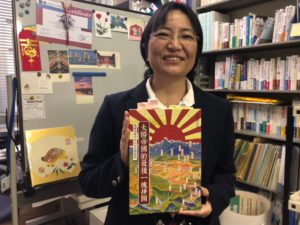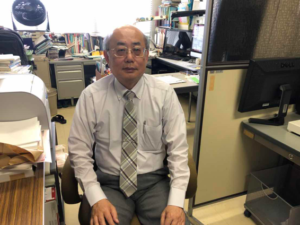Interview [IGS Field of Culture & Tourism Prof. Kawamoto Naoe]
This article is an interview with a teacher in the Faculty of Integrated Arts and Science published in Hisho 95. We introduce Associate Professor Kawamoto Naoe from the Department of Integrated Global Studies.
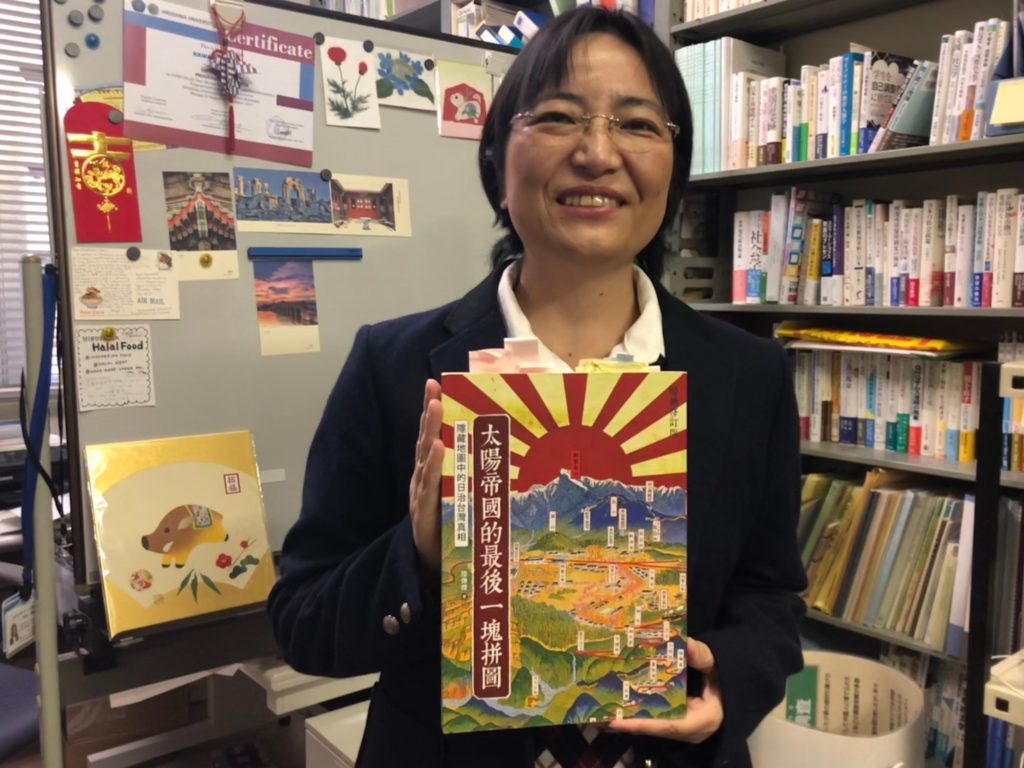
She Studies Social welfare, especially elder migrants in Japan.
In this interview, she told us not only about her research but also about why reading is important for students.
もくじ
From Language to Sociology
What is your study field and how did you become interested in it?
My research field is welfare sociology. I am doing the research of migrants, especially elder minorities in Japan, Taiwan, Korea, and the United States. I am researching how they live, what they need, and what kinds of supports should be provided to them.
What made you curious about migrants’ topic?
I have been teaching Japanese for almost 30 years When I started, I had been just interested in teaching the language, grammars, and idioms, but I realized learning Japanese is not enough for them to adapt to Japanese society. For example, one day my students who were working at a factory asked me what their employer told them mean. The employer gave them a piece of paper, and they do not understand what it says. It was about the change in their working condition. I explained to the students what the paper says. I had similar experiences and it made me noticed that there are various kinds of issues, such as education, labor, poverty, etc., which makes newcomers’ life unstable.
So, I started to support them outside the classroom, because it is vital for them, their family and Japanese society. You may know, in Japan many people and even the government regard migrants’ daily issues are “private” so that individuals have to deal with them by themselves. As diverse a country becomes, it should have an integrated policy which includes measures to help, but Japan does not have any yet. So, I should say I became “serious” about migrants’ issue, rather than “curious” about it. That is why I shifted from teaching language to researching sociology.
Was it scared for you to shift to such a different field?
No. I was very optimistic. I thought diving into a new field would be fun. In fact, I have loved reading books, so, I thought I could manage it. However, I found out that I do not understand anything about welfare sociology after getting into graduate school. I felt like a failure.
How did you deal with that?
I had to overcome. I did everything I could do. I asked my seniors how to study. After I graduated from university, I have been teaching Japanese, so when I came back to school when I was 30 years old, I almost forgot how to study, the proper way to read books, and how to find my research questions. Therefore, I started re-reading books including how-to books; how to set a study topic, write reports, read books and so on. That is why I always tell you to read books. The stock of knowledges you have got from reading would help you someday in near future.
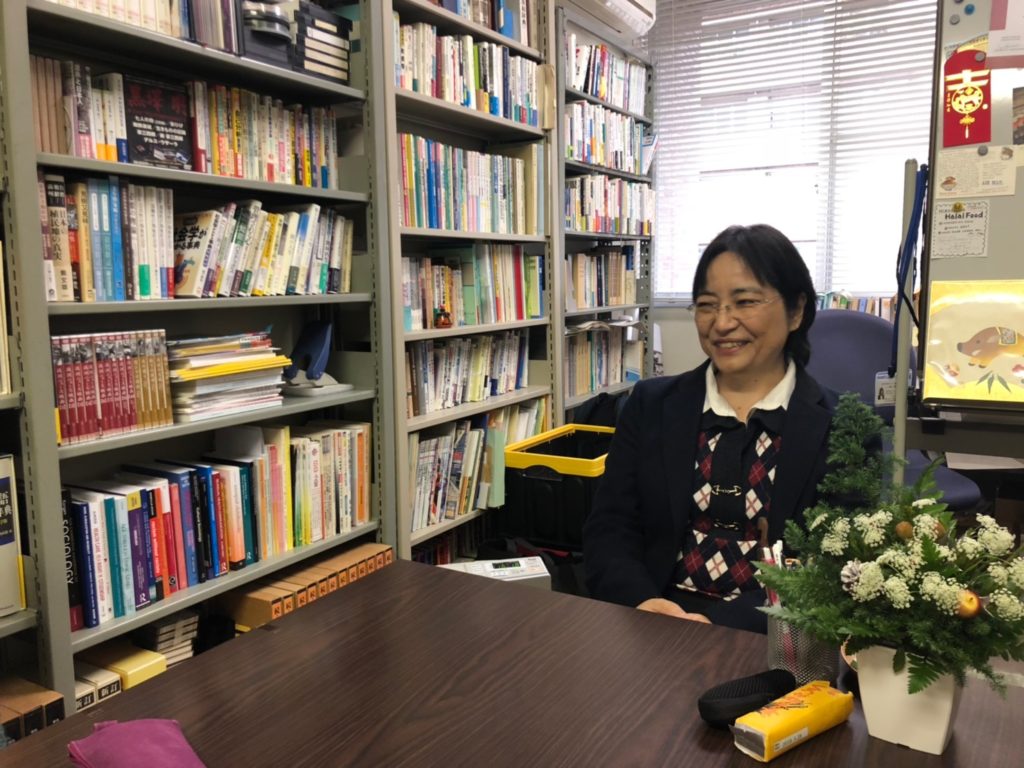
Do you have any tips on how to read more books? Because it seems like nobody has enough time. Must we make time for it every day? Do you have any tips?
You do not have to read very thick and specialized books. You can read novels, business tips, self-help books, or anything. I recommend that you get used to read every day. How about starting from reading one page a day? The key to keep your reading habit is to read little by little and also to have broad interest. Moreover, about making time, I think everyone needs to learn to spend time for themselves, not for others. In my university years, there are no SNS, so after I have got home, I could use whole of my time only for myself to study, read or to think of my life until next morning when I go to school again. However, things are a bit seem to be different in that age. Instead of spending all your time communicating with friends through SNS, spend at least 30 mins a day for reaching your goal, acquiring knowledge, or improving your skills and talents. I hope you to learn to be alone. You may think it is boring, but I believe time to be alone gives us not only time to study but also think about life.
The past and the future
If you could go back to your 20 or 18, what advice would you have given yourself?
I would say three things:
meet as many people as possible, especially adults,
have your own time,
and read books, if possible.
When I was a student in Osaka University of Foreign Studies, professors were not as strict as now, and in my university, lots of professors who taught liberal arts subjects were from Kyoto University. As it is widely known, the most fascinating feature of Kyoto university is that the professors are not strict so that students have freedom. Not only they do not assign any homework, but they even do not request students to come to the class. Therefore, it is OK to skip the class as long as you can write the report or can pass the examination without taking classes. Until my graduation from high school, I had never met that kind of teachers. Therefore, I remember one thing very well.
One day when I attended a liberal arts class with my friends, the professor asked me why we attend every single class. I have got confused by this question because I assumed that classes are made for students to attend. However, the professor continued that we could learn the contents of the liberal arts subjects by ourselves through reading books, so we might just read books at home instead of coming to the class. I could not understand what he meant at that time, but I did after I became a teacher. I think he wanted to tell us that we need to think harder and harder by ourselves, instead of just coming to the class and sitting in seats. I guess similar thing can be said for reading. Just staring at the enumerate of words will bring you nothing, but you need to read as if you are having a conversation with the author. First, you need to understand what the author is telling us, and then you will have some questions when you finish reading it, but the author does not tell you anything anymore since it is the end of the book, so what you do next is to think about it by yourself. That is how to read books and what it is all about.
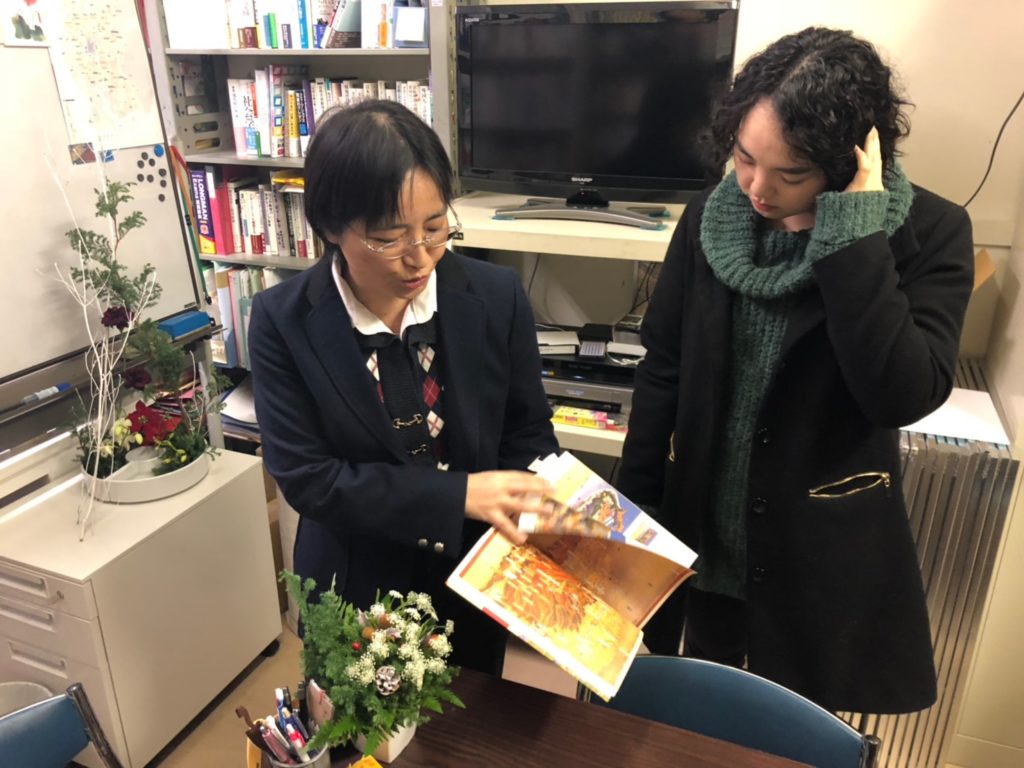
I also would like to know about your future. What is one main thing you would like to achieve in your study about sociology and migrants in the next 10 years? Where do you see yourself going?
Now I am researching the elderly migrants, and my goal in next 10 years is to contribute to society with my research. That is, investigate elderly migrants’ life and needs for support after that I want to share the result with specialists of care, migrants’ family and their supporters. These people will be able to make lists of supporting menus for elderly migrants. In the field of sociology, there are a lot of migrant studies which focus on younger generations and middle-aged, such as education and work environment. However, researches on elderly people are very few. Recently, many researchers including me started to focus on elder migrants. They have culture-oriented, language-oriented, and personal needs. Culture-oriented and language-oriented needs are hardly fulfilled, and individual needs are very diverse. Then, can we leave elderly migrants socially excluded because of culture, language, and their personal needs? I don’t think so. As a human, everyone should be respected and included in society.
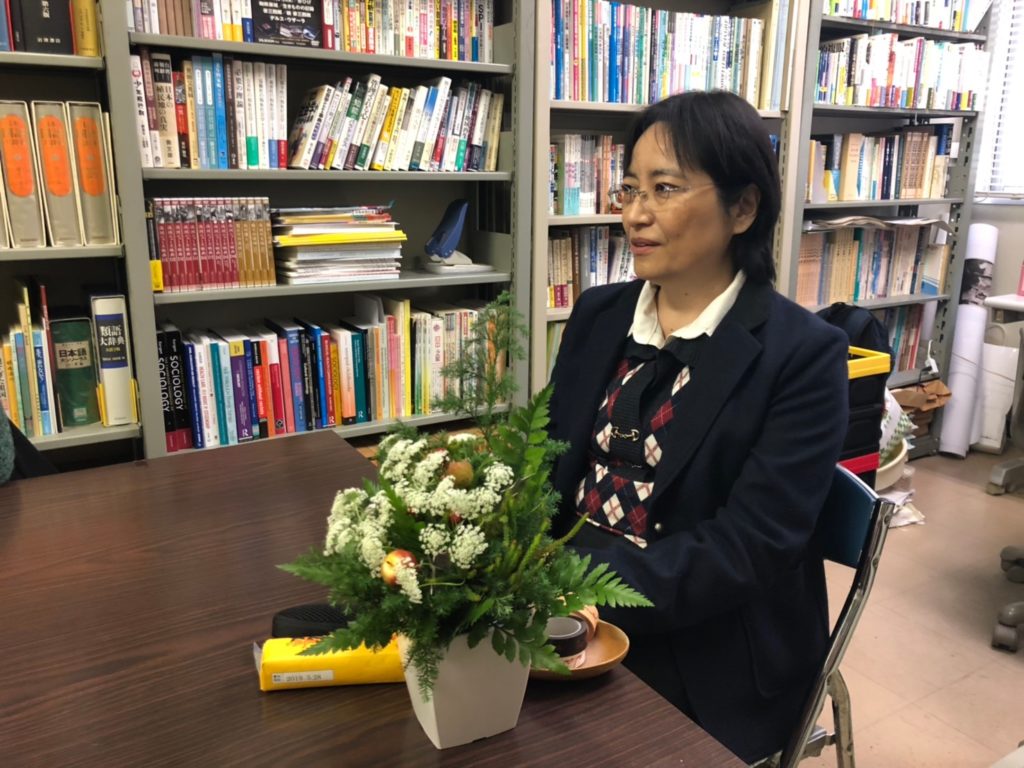
At The end…
Many books supported Her shift from Japanese language education to social welfare.
Recent college students have lost time alone and use the internet to get information. So, we have very little time to read books.
In this interview, she taught us the importance of reading books again. I I want to make a habit of reading a book every day.
This article is the first English version of Hisho Web Magazine.
You can read the Japanese version here.
Thank you for reading! See you next time!

